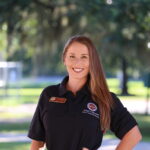
Translating Theory into Practice: Addressing Practitioner Assumptions About Collegiate Recovery Programming
Translating Theory into Practice: Addressing Practitioner Assumptions About Collegiate Recovery Programming
Information
Recorded
-
-
Educational Goal
To increase attendees understanding of students who identify as “in recovery” but are not totally abstinent.
Description
This workshop is intended for practitioners, or future practitioners, of Collegiate Recovery Programs. Attendees are educated on how to translate theory into practice and address their assumptions about substance mis/use and recovery so they can provide students a full continuum of care. Aligned with a social justice, diversity, equity, and inclusion framework, participants will learn how to consider students who identify as “in recovery” but are not totally abstinent, consider historical and cultural norms of substance use, and those students who do not choose to use 12-step or formal treatment in their recovery journey.
Target Audience
- Counselor
- Marriage & Family Therapist
- Psychologist
- Social Worker
- Substance Use Disorder Professionals
Presenters

Chelsea is a doctoral candidate in Higher Educational Leadership & Policy Studies at Florida State University. She currently serves as the Graduate Coordinator for the Collegiate Recovery Program (CRP) within the Center for Health Advocacy and Wellness (CHAW). As a student in long-term natural recovery herself, her research interests focus on the substance using, misusing, and recovery identity formation of college students as well as identifying mechanisms CRPs can leverage to provide students a full continuum of care. Her work employs methodologies common to college student development theory but novel to the fields of substance use/disorder and recovery research, thus produces new conceptual and theoretical understandings of the public health problems in addiction and recovery
Financially Sponsored By
- Association of Recovery in Higher Education